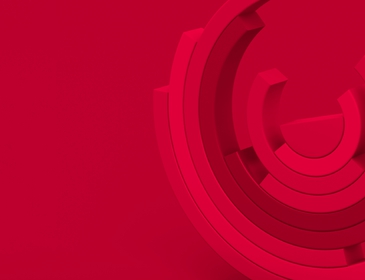Interviewed by Kevin O’Neill
Q&A with Mark Baiada
Mark Baiada, founder and chairman of BAYADA Home Health Care, finds his purpose in helping others. With only $16,000 in savings, he founded the home nursing company to provide comfort, independence, and dignity to clients. Mark leads with compassion and has expanded BAYADA to serve 150,000 clients a year, with more than 28,000 employees in 23 states and six countries.
After his retirement as CEO, Mark sought to preserve the company's mission by converting the $1.4 billion business to a nonprofit. During the transition, Mark distributed $20 million of his own funds to past and present BAYADA employees.
His desire to help others has driven his business decisions and made him a thoughtful, compassionate leader. Below are some of the lessons he has learned throughout the years that you can use as you determine your company’s — and your own — purpose.
Find your calling
Mark: I grew up in South Jersey and attended the local Catholic school. I thought I wanted to be a priest, but I realized priesthood wasn’t the path for me. My grandparents were from Sicily, and my mother was from Yugoslavia. They instilled the importance of education, compassion, and hard work in me from a young age.
My family was comprised of entrepreneurs — I always saw business around me. My dad started a business in our house when he left the Navy; two of my uncles also ran their own businesses. They inspired my entrepreneurial spirit and my desire to work in the personal service business. Growing up, I held a number of jobs: paperboy, busboy, snow shoveler, and door-to-door greeting card salesman.
I went to college during the Vietnam War era, so I enlisted in the National Guard after I got my MBA. The military was physically demanding, but it wasn't much of a mental challenge. I had a lot of time to think about what I wanted to do with my life, and I realized I wanted to have my own business that would span the country. I knew I would have to be disciplined to reach my goal. Once I got out, I had so much college debt that my net worth was negative. I had to be super frugal for five years — I wouldn’t even eat at McDonald’s. I’m still that way; my kids have nicer cars than I do.
While I was saving, I learned as much as I could about the world of business. I did anything I could to gain experience, including managing a Cub Scouts pack to gain leadership skills. I also accepted a role with Avon Products in Manhattan for a few years after learning that Harvard Business Review ranked it as one of the best-managed companies in America at the time. It was only after I put in the research and work that I felt ready to start my own business.
Create something you can be proud of
Mark: On Easter Sunday in 1974, I assessed my finances — I only had $16,000 — and my goals. I wanted to do something meaningful that I could reproduce from coast to coast. I asked myself three questions: 1. What are my resources? 2. Which product/service has a long-term, growing demand? 3. How can my business make a difference?
As fate would have it, I came across a home health care franchise advertisement in the New York Times. It had low barriers to entry, it was something people needed, and demand was growing each year.
I went to the library (there was no internet then) to research the long-term demand for home health care. I knew it was important for me to focus on long-term growth rather than short-term returns; you have to balance the two. The number of elderly people in the U.S. was projected to grow slowly but surely, and I knew they would need quality care in the comfort of their homes. I wanted to help those people.
In 1975, at 27 years old, I started BAYADA in Philadelphia. I understood the market and business model, but I had never hired or fired anyone. It wasn’t easy, but I established the importance of honesty and respect early on. My staff members knew I would take care of them. Communication is key for leaders who want to build that trust and loyalty.
Starting a business is no easy task, so I knew I would have to be disciplined and persevere to meet my goals. Gradually, BAYADA grew from coast to coast. I’m proud that I overcame the challenges of starting a new business. The most important thing I learned through my experiences is that you have to be tenacious and do the work. Having a mission and purpose helps with that.
Understand your mission
Mark: I’ve always thought it was important to have a strong mission to guide the company. The root of our mission, The BAYADA Way, has three components: serve billions of people worldwide, be the world’s most compassionate and trusted team of healthcare professionals, and leave a lasting legacy. We’re here to help people have a safe home with comfort, independence, and dignity. The BAYADA Way gives meaning to our work; it brings the company together for the higher purpose of providing care to people in need.
I never built the business to sell it for a big payday. As I prepared for retirement, I was committed to leaving a lasting legacy that would stand for a few generations. Of course, ownership is the key to that. I studied the market and saw that the longest-lasting businesses were nonprofits. With that knowledge, I decided that a nonprofit business model was the best way to preserve my company’s legacy. I wanted BAYADA to continue to provide the services it was known for while also being a great place to work. People are seeking purpose in their lives — more than just making money. They want to be a part of something bigger, and BAYADA provides that.
Lead with compassion
Mark: Leading with compassion inspires my employees to buy into the BAYADA mission. It’s important to walk the walk by treating people the right way. I have always wanted everyone in my company to trust each other and feel a sense of loyalty.
Investing in your business means investing in talented people. The first part of the equation is that you can’t win unless you have a big enough payroll. You have got to pay and take chances hiring people until you find employees who are problem solvers and great at their work. The second part is hiring people aligned with your values. I like to hire people with great attitudes who are conscientious, persistent, and align with The BAYADA Way. These are the people who will run over to help if they see someone fall down. They want to solve others' problems and are compassionate, self-sacrificing, and caring.
If you do these things, you will foster a team where everybody does the job they’re assigned. To me, that’s the true definition of brilliant people at work. No matter how small the job, being brilliant is doing your particular job brilliantly. As long as everyone does their job at a high level, we're cooking. Everybody should find their place where they're able to do what they do really well. There’s a job for everybody.
I’m inspired by people like St. Ignatius, who are passionate about changing the world. I feel I’ve created a company that changes our clients’ worlds by providing compassionate care in times of need. Ultimately, I want to be a positive force in society by helping people. That’s no easy task, but striving for this higher purpose has made me the leader I am today. You, too, can lead a lasting business if you have a strong purpose.
Defining brilliance with Mark
| Purpose is... | What you need to give meaning to your life. |
| Leadership is... | gathering a group of people together for a common purpose. |
| Brilliant leaders are... | those who can discover meaningful purpose and can gather people around that shared mission to make it happen. |
| Success is... | helping others. |
| I perform at my best when... | I don't have much time. A lack of time makes me more productive. When there's a deadline, if felling like its the end of a game and the clock is ticking. |
Never miss insights
Stay in the know with our thought leadership
Kevin's thinking
Leadership
The Value Multiplier: Why Private Equity's Best CEO-OP Partnerships Start with the Right CFO
Jul 21, 2025

Sports & Entertainment
How Top CROs Are Unlocking New Revenue Streams in Sports – with Data and Collaboration
May 05, 2025

#BrilliantPeopleAtWork
Marc Jourlait: Riverside Operating Partner on the Journey and Joy of Fixing Broken Businesses
Oct 06, 2023

